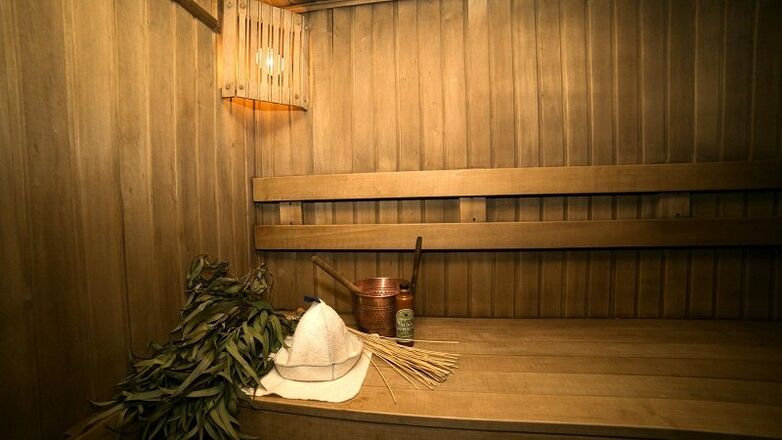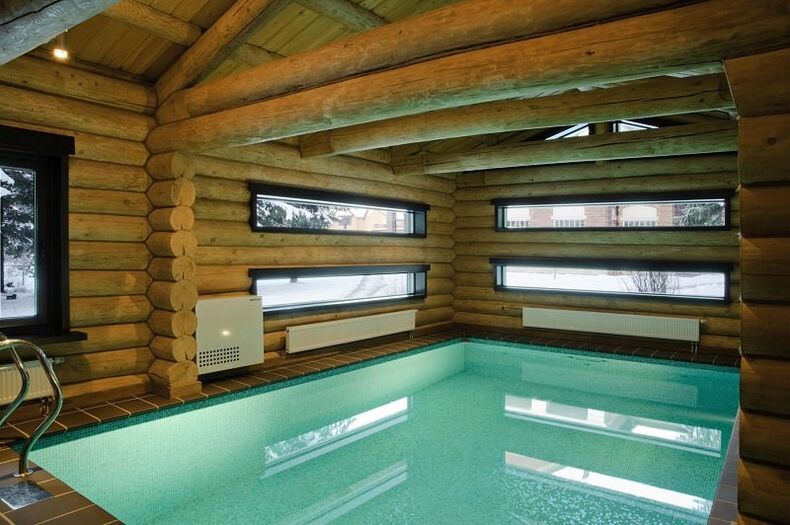Varicose veins are a disease that is becoming more and more common. So people have a lot of questions about it. One of the topics that is actively discussed is whether a bath will harm varicose veins. Consider which bath you can visit with varicose veins, what rules apply and what the tradition of visiting the steam room can lead to.
Is it possible to bathe in the bath with varicose veins
Varicose veins in the legs is a disease that imposes many restrictions on a person. As for visiting the baths, in the early stages of the disease they are allowed to visit. In addition, the procedure of bathing in the hammam can be beneficial.
If the disease has passed into the stage of thrombophlebitis, then you will have to abandon the bath, this stage is characterized by the formation of spider veins and dilation of the veins.
Being in a room with excessively high temperature conditions worsens the patient's condition. Therefore, it is better to abandon the bath in favor of a contrast shower or a visit to the swimming pool.
The benefits of a bath for varicose veins
Visiting the bath under certain conditions becomes one of the measures used to treat varicose veins.
The beneficial effects of high temperatures in vascular disease are associated with such positive effects:
- elimination of blood stasis by normalizing blood circulation;
- blocking of inflammatory foci;
- stimulation of the process of regeneration of venous tissues;
- elimination of uncomfortable sensations - heaviness and fatigue in the legs.
Baths are useful for thinning veins. The effect of temperature strengthens blood vessels, improves their tone. Water procedures, when properly used, cleanse and heal the body. They become one of the preventive measures to reduce the risk of complications of varicose states if the disease is in the 1st stage.

Using heating pads, steaming hot water on your feet, and high-temperature baths can all lead to thrombophlebitis.
Rules for visiting the bath with varicose veins
Baths will not harm varicose veins of the lower extremities if you follow the rules for visiting them.
They are the following:
- take water procedures on an empty stomach;
- you should refuse to go to the bath if the disease has worsened;
- care must be taken that the vessels are not pinched - in the bath you can stand or lie down, but in no case sit cross-legged;
- a beneficial effect on the condition of the vessels has a massage of the lower extremities with a pre-steam broom, it is better if it is collected from juniper or oak leaves;
- to complete the journey to the bath, you need a shower with cool water and rest in a lying position.
With varicose veins, the legs should be washed with the evaporation method. It consists of rubbing them with a damp washcloth. After that, you need to go to a dry room and wait for the water to evaporate. This procedure helps eliminate swelling and heaviness in the legs. Thanks to this, the risk of recurrence of exacerbations of varicose veins is reduced.
It is forbidden to visit the public baths if moderate or severe varicose veins are diagnosed. Contraindications to this type of water procedures are also thrombophlebitis, the rehabilitation period after surgery and varicose veins complicated by chronic or inflammatory diseases.
Rules for visiting the hammam
It is not necessary to refuse to visit the steam room with varicose veins of the lower extremities. It is enough to follow the rules, thanks to which it is possible to prevent damage to ships from high temperatures.
To reverse the habit of steaming not to harm, but to benefit, the following recommendations will help:
- for the first time you need to enter the steam room for no more than 2-3 minutes, this approach allows the vessels to adapt to the high temperature;
- it is possible to use a broom, peeling and other procedures aimed at healing in areas where varicose veins do not have a pronounced manifestation;
- one visit to the bath involves no more than 5 visits to the steam room, in case of more pronounced symptoms of varicose veins, they should be reduced to 3;
- visiting the steam room, you need to monitor the position of the legs - they should be at the same level with the body.
High temperatures can cause discomfort in the legs where the signs of varicose veins are most pronounced. To get rid of such a manifestation, the affected areas should be covered with a damp cloth.
The pros and cons of the sauna for varicose veins
When visiting a sauna during varicose veins, you need to weigh the possible risks. This procedure can affect both negatively and positively. Among the beneficial effects of visiting the sauna there is an increase in vascular tone, stimulation of blood flow to the tissues and the elimination of fatigue and heaviness in the legs. By improving blood circulation, more oxygen and nutrients are delivered to the tissues.
The negative effects of water procedures in the sauna include excessive stress on blood vessels, blood stasis and possible disease progression. The mechanism of the formation of complications begins with excessive blood flow to the tissues.

With a hereditary predisposition to varicose veins, but in the absence of symptoms, a visit to the bath will be an excellent prevention.
Due to the disease, the vessels do not tolerate a large load. The blood pools there and blood clots form. Therefore, before deciding to visit the sauna, you should consult with your doctor.
The advantages and disadvantages of a contrast shower
A contrast shower is used in the prevention of varicose veins. It is also included in the complex therapy of the initial stage of the disease. Its positive effect is aimed at improving blood circulation and increasing vascular tone.
A contrast shower will not hurt if you follow these rules:
- the procedure should be carried out regularly;
- you need to monitor the choice of water temperature regime - it should be average, not leading to hypothermia or overheating;
- you need to get used to the contrast shower, starting with warm water and lowering its temperature by 1 degree every day;
- the first attempts to adopt the procedure begin with a 2-minute shower, gradually increasing it to 5 minutes;
- every 10 seconds you need to change the water temperature;
- you cannot hold the water jet in one place for more than 2 seconds, you must move it from the lower back to the legs.
In the early stages of the disease, a contrast shower should be approached with caution. Sudden changes in temperature can lead to the manifestation of pain.
Prolonged exposure to heat will cause varicose veins.
The blood in them can flow too quickly and unevenly. As a result, edema is formed. Thus, varicose veins become a contraindication to the use of a contrast shower with hot water. The procedure should be abandoned if there is an average or severe stage of the disease.
The advantages and disadvantages of heat loads for varicose veins
If there are pronounced varicose veins, it is strictly forbidden to resort to heat stress. This also applies to steaming legs, hot baths. The negative impact of thermal procedures is associated with dry air in saunas.
It leads to a deterioration in the structure of blood vessels, to their fragility. Due to high temperatures, the area affected by varicose veins increases. The vessels cannot provide normal blood flow due to an increase in the volume of blood circulation.
If, after consultation, the doctor prescribed a visit to the baths and a contrast shower in addition to the main methods of treating varicose veins at the initial stage, you should follow the rules of the procedures. Only then will they benefit.























